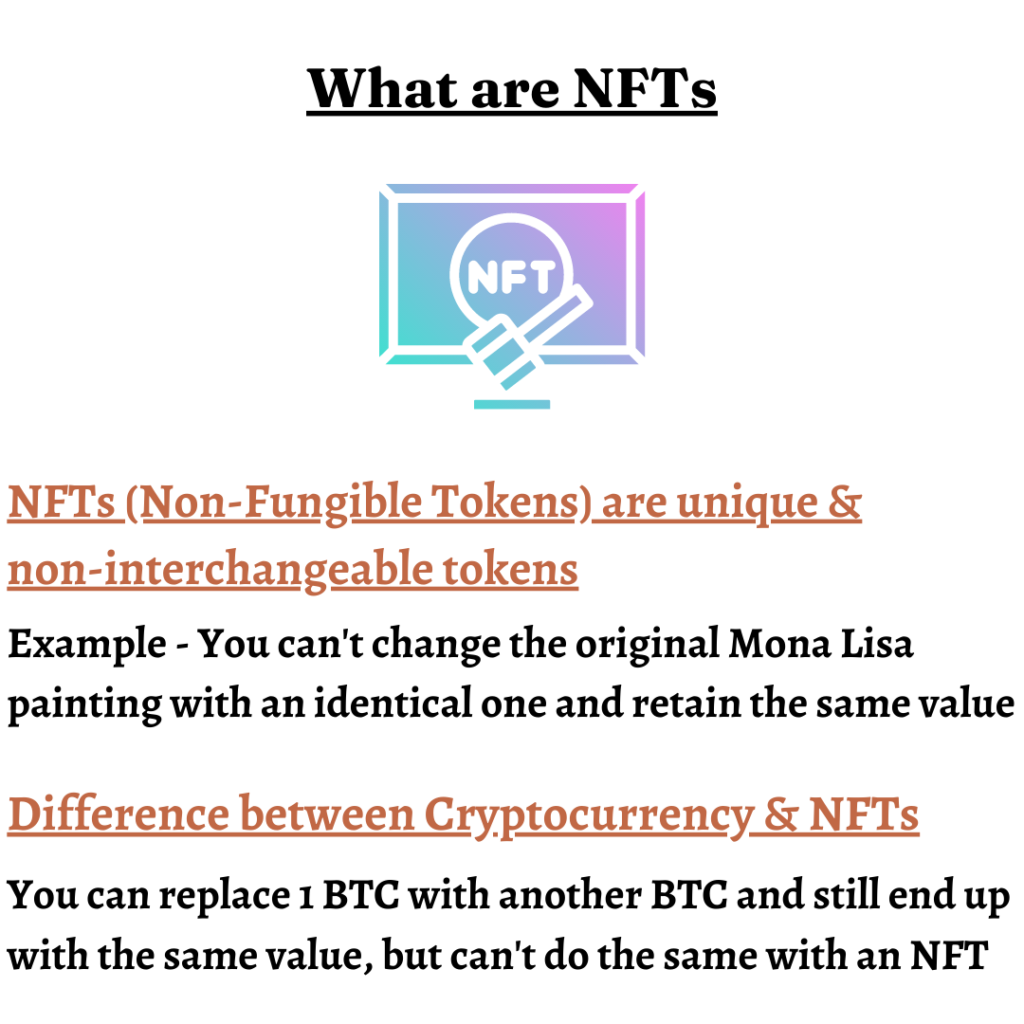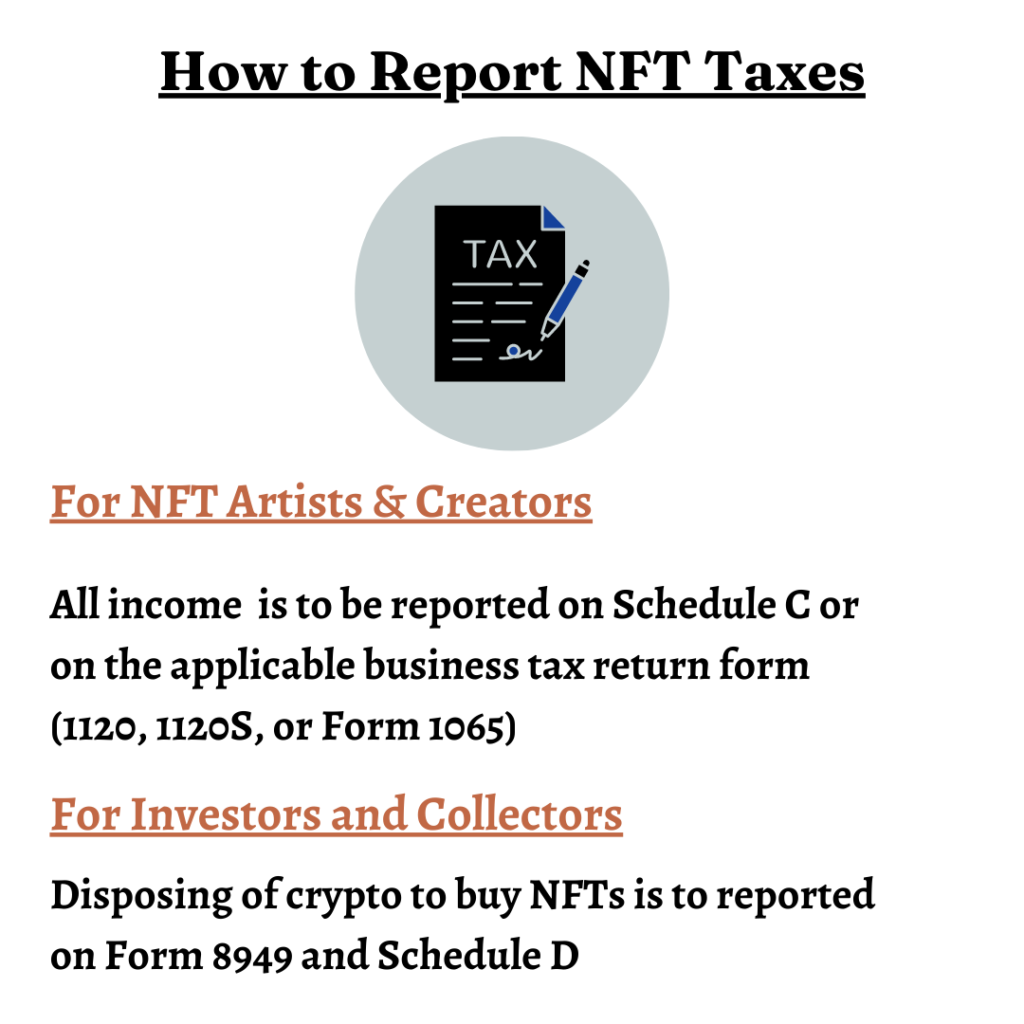NFT Taxes – Everything you Need to Know
Non-fungible Tokens (NFTs), once popular only among crypto-enthusiasts, are now quickly overtaking the mainstream by storm. It’s clear that it’s not just a passing trend. NFTs are here to stay.
People all over the world are earning top dollar from flipping NFTs. Creators and artists struggling before this boom are now thriving by selling their artworks on online NFT marketplaces like NiftyGateway and Open Sea.
When it comes to taxes, NFTs are no exception. Technically, the IRS hasn’t issued any official statement regarding NFTs and their tax laws – the tax law does state that any “work of art” is considered a collectible and that collectibles are subject to taxes. So, if NFTs are works of art, one can assume that they are indeed taxable.
While that is the assumption that most tax professionals make, there are a few nuances to account for.
In this article, we’ll go over those nuances. But first…
What is a NFT & How is it Different from Cryptocurrency?

Simply put, Non-fungible tokens (NFTs) are unique digital assets on a blockchain.
Fungible tokens or items, on the other hand, are not unique. Take a piece of paper, for example. If you were to replace a piece of paper with another identical piece of paper, you still end up with a piece of paper. Similarly, if you send 1 BTC to your friend in exchange for 1 BTC, you end up with 1 BTC. That’s why cryptocurrencies are generally fungible and interchangeable in nature, while NFTs are not.
Non-fungible items are unique and non-interchangeable. You can’t exchange the original Mona Lisa painting with an identical one and retain the same value. NFTs are digital items with unique IDs and metadata that make them non-interchangeable. So far, music, videos, images, and text files have been minted into NFTs.
So, although any person can download a copy of Beeple’s Everydays – The First 5000 Days, it won’t hold the same value as the original NFT. That’s why despite the IRS not issuing any official statement (yet), it seems likely that NFTs will get the same tax treatment as collectibles.
NFT Taxes for Investors?
Investors are people who buy and sell NFTs for speculative purposes. Most people fall in this category.
Since NFTs are considered collectibles, they are subject to capital gains tax rates, the same as cryptocurrency. That’s why despite NFTs and cryptocurrencies being fundamentally different, their tax laws are almost the same.
For example, let’s say John bought 5 ETH for $1000 in February 2021. After six months, he disposes of his 5 ETH, which is now valued at $5000, to buy a digital dog painting from Jerry. This will trigger a taxable event since John realized a short-term capital gain of $4000 ($5000-$1000). Short-term capital gains are taxed based on your income level.
Six months later, if John sells this NFT for $8000, once again, he would be subjected to a short-term capital gain of $3000 ($8000-$5000). However, say if he sells it after 18 months, he would be subjected to a long-term capital gain since the holding period of the NFT is longer than 12 months. Long-term capital gains are taxed at the rate of 0%, 15%, or 20%.
NFT Taxes for High-Net-Worth Individuals?
High-net-worth or high-income individuals are subject to higher tax rates. In single filers, this income threshold is $441,450, while in married filers, it’s $496,000.
Unlike the highest tax rate of 20% in long-term capital gains, high-income individuals are exposed to a tax rate of 28%, with an additional 3.8% net investment income tax.
NFT Taxes for Artists & Creators?
Anyone creating and selling artwork as NFTs in online marketplaces will be considered an NFT artist or creator.
As for the tax law, NFT artists would have to pay the usual income tax rates. Let’s take the “digital dog painting” example again. Jerry sold his digital dog painting to John for 5 ETH, valued at $5000. Jerry would now have to report this amount as ordinary income and pay the necessary self-employment or income tax rates. Also, since it’s his business, he can deduct any business-related expenses like subscription fees, transaction fees, and so on from his final income.
How to Report your Taxes on NFTs?

For NFT artists and creators, reporting tax is pretty straightforward. All income (including NFT-related income) is to be reported on Schedule C (Profit or Loss From Business) or on the applicable business tax return form (1120, 1120S, or Form 1065). And, of course, under section 162, you can deduct any business-related expense as mentioned earlier.
As discussed, disposing of cryptocurrency to purchase NFTs and vice versa comes under capital gains and losses, as per IRS Notice 2014-21. So, to report taxes on these, use Form 8949 (Sales and Other Dispositions of Capital Assets) and Schedule D (Capital Gains and Losses).
We recommend keeping a detailed and accurate record of all cost basis and market value information of the cryptocurrencies you used to purchase your NFTs, and the NFTs themselves. You can also use a service like Bitcoin.Tax to track your NFT transactions and see the real-time capital gains and losses you have from trading NFTs.
Remember…it’s crucial to understand the tax implications of buying and selling NFTs before jumping in the market blind.